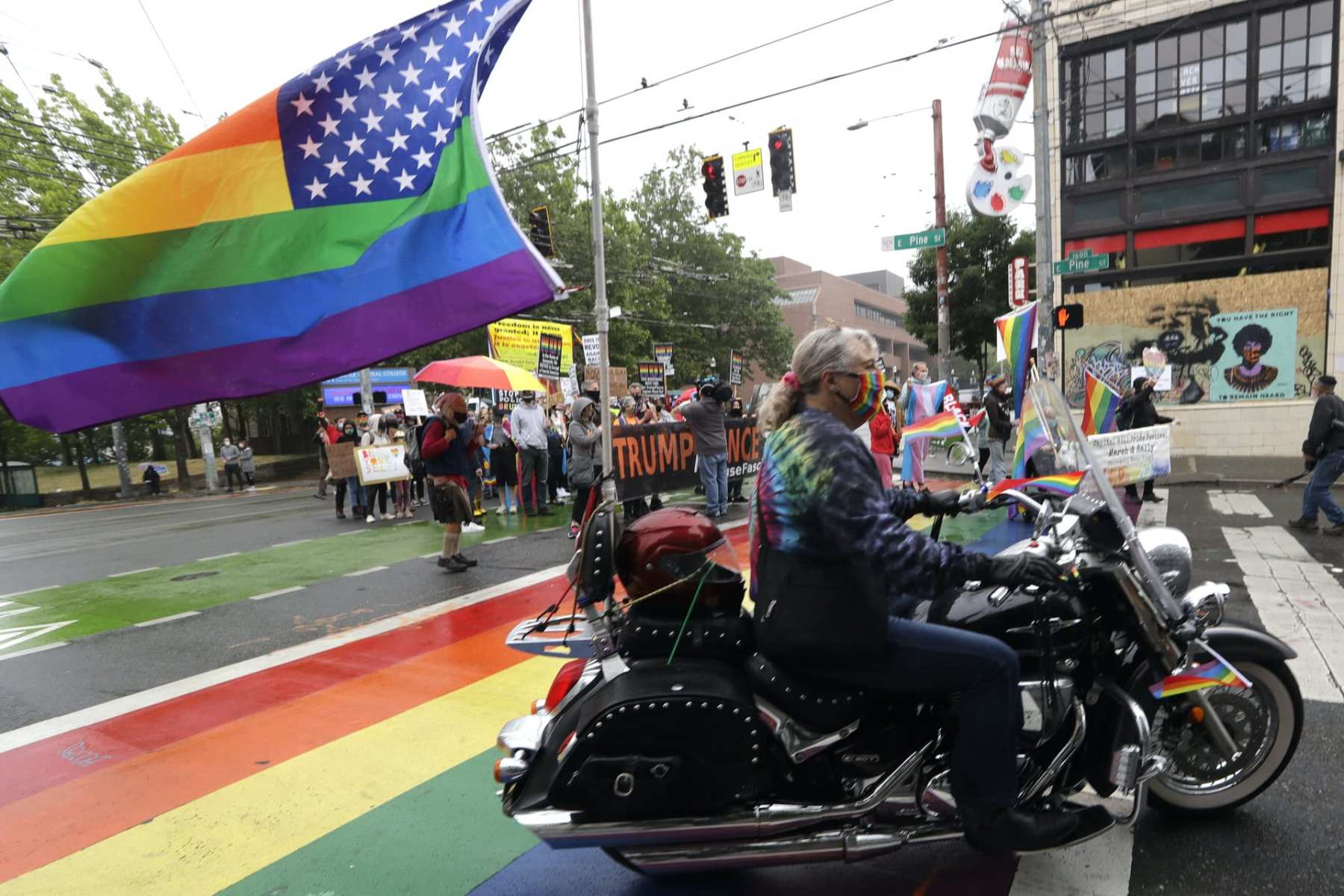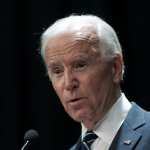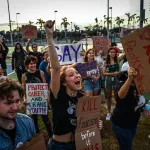President Donald Trump’s supporters may side with him on a number of issues, but LGBTQ+ rights are not likely to be one of them. A new poll shows that likely voters in key swing states overwhelmingly support LGBTQ+ equality — including those supporting Trump.
The poll, released by Hart Research Associates and LGBTQ+ organization the Human Rights Campaign, breaks down data from 400 likely voters in Arizona, Florida, Michigan, Pennsylvania, Wisconsin, Georgia, Iowa, North Carolina, Ohio and Texas respectively. Across the board, voters expressed support for marriage equality, adoption rights and transgender military service. Texas was the only state where voters indicated a negative attitude toward any LGBTQ+ equality question — 49 percent didn’t support laws that let businesses turn away LGBTQ+ customers because of their religious beliefs.
Among Trump voters, at least 60 percent in each state said they felt transgender people should be able to live freely and openly, and 87 percent or more supported transgender access to medical care.
“I think if you look at this in its entirety, the thing that is missing for many conservatives out there is that they think LGBTQ issues are a really big wedge,” said JoDee Winterhof, senior vice president of policy and political affairs for the Human Rights Campaign. “And those days are gone.”
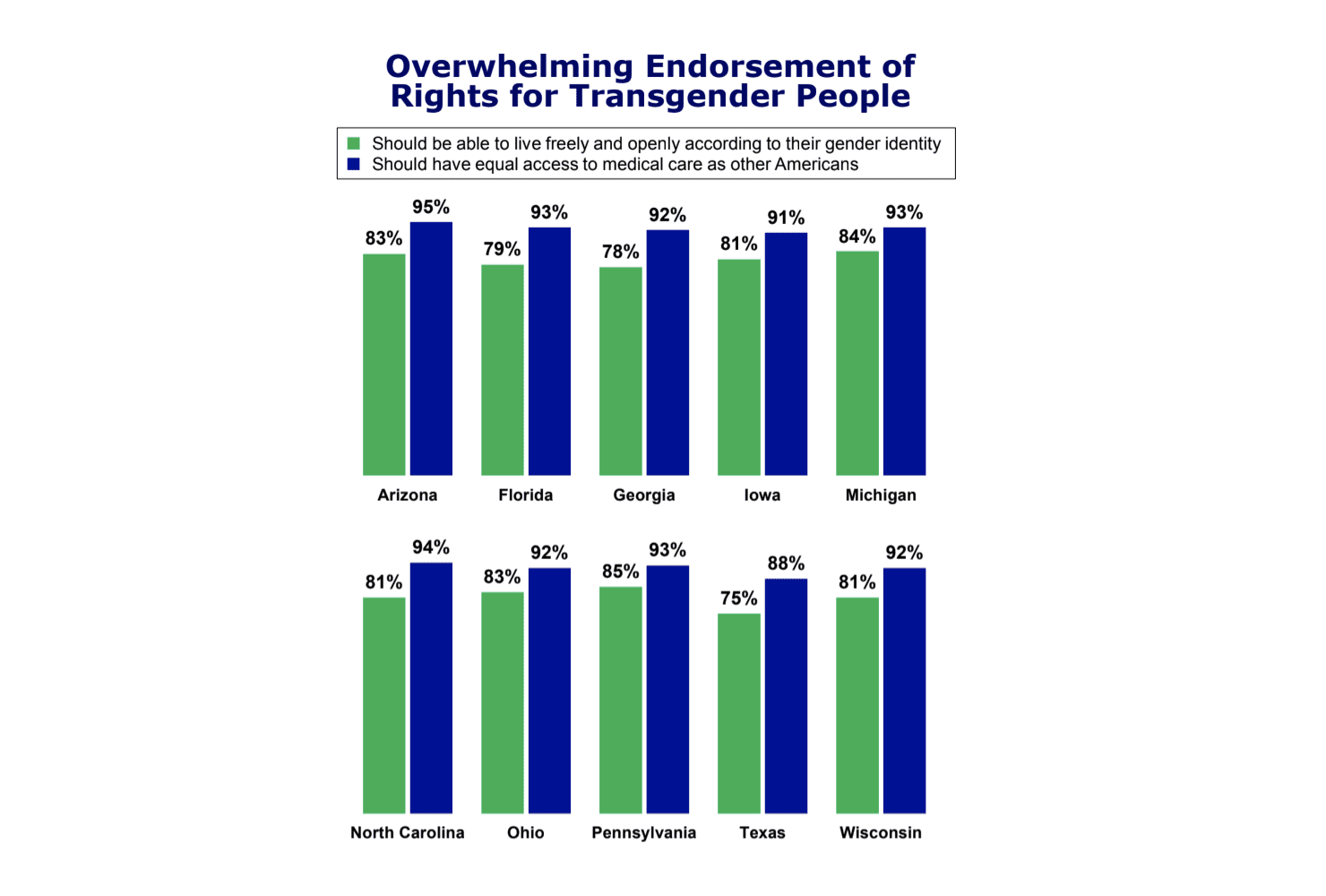
The poll, conducted in mid-September, also asked voters about their views on a Supreme Court pick. By margins of at least three to one, voters in every state favored a justice “who has a record of protecting and advancing legal rights for LGBTQ people.”
The new poll not only raises questions about Trump’s efforts to target his base, but raises fresh questions about support for Supreme Court nominee Amy Coney Barrett, who has been criticized as anti-LGBTQ+ by 27 equality organizations. The groups have blasted her affiliation with Alliance Defending Freedom, a vehemently anti-LGBTQ+ organization that the Southern Poverty Law Center has designated as a hate group.

In a 2016 lecture at Jacksonville University, Barrett said judges don’t rule on personal beliefs or popular opinion. In that same speech, however, she indicated that it would “strain” the text of Title IX to allow transgender people to use public restrooms that match their genders.
“People will feel passionately on either side about whether physiological males who identify as females should be permitted in bathrooms, especially where there are young girls present,” Barrett said.
The poll also revealed attitudes about transgender athletes, an issue that many conservative state lawmakers have pressed this year. More than 200 anti-LGBTQ+ bills hit state legislatures earlier this year, many of them aimed at preventing transgender girls from joining girls sports teams. Of all the issues voters ranked, however, trans participation in athletics came in last, with between 1 to 3 percent of people saying it was their first issue in most states (Texas had the highest interest at 6 percent). The economy topped worries, with 47 percent of voters saying it was their first issue.
Winterhof acknowledged that the poll may feel like a contradiction to many LGBTQ+ people. This year has been the deadliest on record for transgender people, and the 2020 election season has seen a number of homophobic and transphobic political attacks.
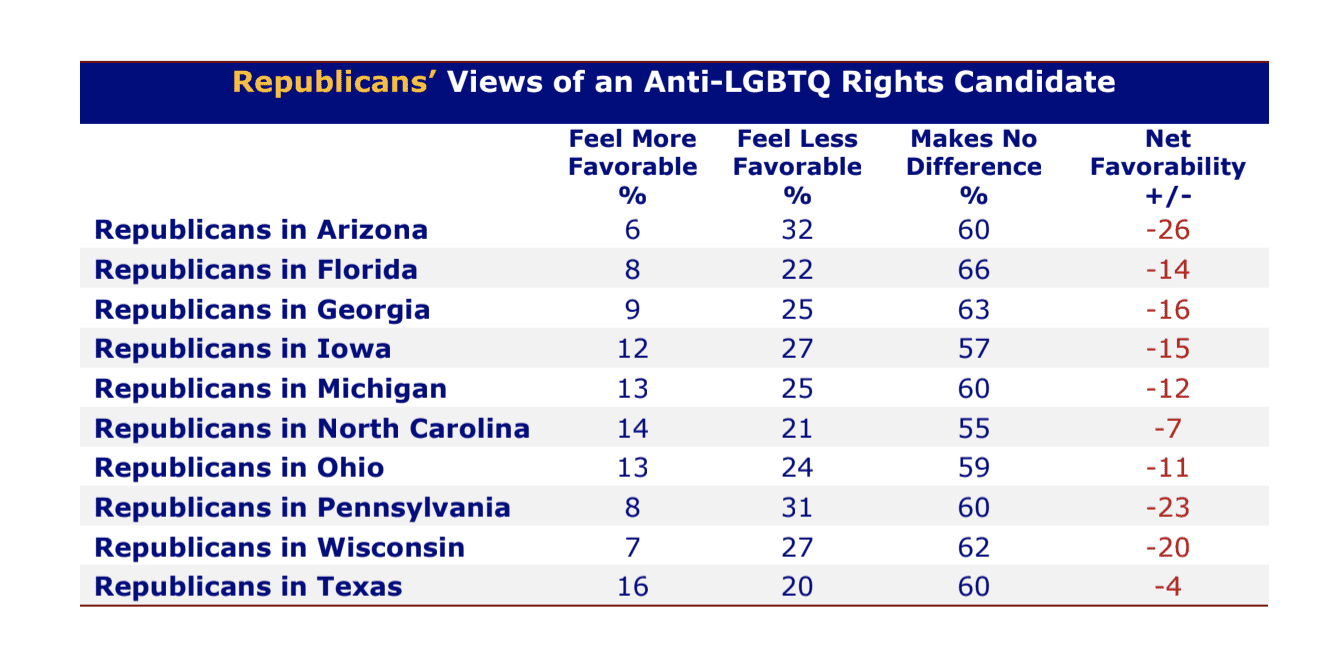
“I do think it is not people’s intent to discriminate,” Winterhof said, adding that there are exceptions.
Winterhof thinks the Trump administration has inflamed anti-LGBTQ+ sentiments and normalized violence. But she also says the poll demonstrates something that advocates have long known — homophobia doesn’t actually win elections.
“We see the polls that basically tell us youth and young adults… that one in five identify as LGBTQ,” she said. “And how many people are touched by those kids coming out at these younger ages? It feels like a secret, but it’s not such a secret that we’re in everybody’s families. The evangelical family is having LGBTQ kids.”
That means that advocates are no longer focused on winning acceptance, she said. They’re working to educate voters on LGBTQ+ issues and the candidates that support them.
“Our issue is much more about turnout, not persuasion,” she said.
